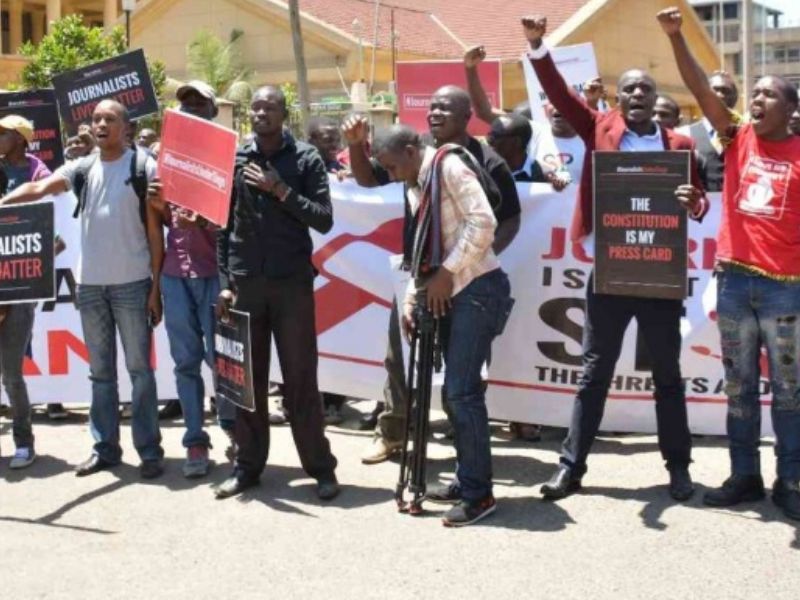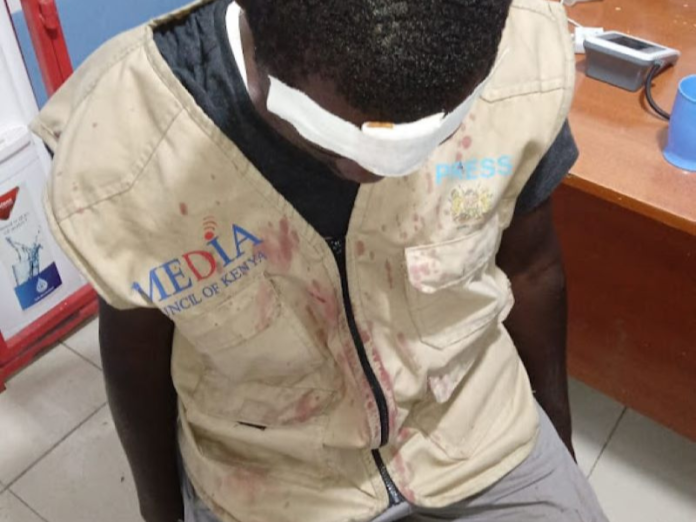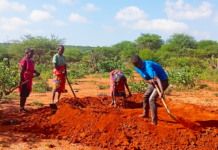By Henry Owino
Nairobi, Kenya: Freedom of the press is an essential right and a core principle of democracy in any given country. A free press helps maintain the balance of power in government and keeps the citizens informed.
Unfortunately, this is not the case in most countries in the world. This has been confirmed by various media formations; associations, unions, press clubs, and like-minded organizations across the globe.
For instance, in Kenya, the shrinking press freedom is worrying media stakeholders with the current regime which seemingly is against journalists. This follows a spate of attacks aimed at media vehicles and journalists covering demonstrations organized by the opposition and Azimio la Umoja Coalition leader.

Media Council of Kenya (MCK) a national body that regulates media and journalists in the country affirms that press freedom is shrinking in the country. This follows the report that Kenya dropped to position 116 in the press freedom ranking globally as the world marks Press Freedom Day on the 3rd of May.
In the Previous year 2022, Kenya’s press freedom was ranked at position 69 down from 103 in 2021. It is the worst position ever and can be attributed to journalists’ attacks by the current regime. For instance, in the past few months, there have been demonstrations and Kenyans witnessed journalists attacked, beaten up, and tear-gassed by police officers for covering ongoing protests by the Azimio la Umoja Kenya politicians.
The most recent infringement of press freedom was the Shakahola massacre in Kilifi County where media were banned from actively covering on the site. On the flip side, journalists were the first to unearth the activities of the cult in Shakahola that radicalized hundreds of members including children to fast to death.
“The whole of these skirmishes, media is seriously being targeted for attack with an aim to silence them. The other day and even today’s demonstrations several journalists have been injured by teargas canisters thrown left, right, and center by police,” Raila Odinga, Azimio la Umoja leader.
“There is a vicious attack on the media. Water cannons are aimed at the camera. I haven’t seen anything like that before towards journalists. Teargas were directed at media vehicles and many journalists were left with injuries. So, it is clear that media has become a target in these demonstrations,” Martha Karua, Azimo la Umoja deputy leader.
This year’s World Press Freedom Day was marked on Wednesday, 3 May, and in Kenya, it attracted media practitioners and stakeholders who came in large numbers to commemorate the annual media summit.
It is a day set aside for media as a celebration of free expression and a critical opportunity to raise awareness of the escalating threats to journalists and independent media worldwide. This year’s theme is; “Shaping a Future of Rights: Freedom of Expression as a Driver for all other human rights.”
While calling for an end to media and journalists’ rights violations, Zubeida Kananu, Kenya Editors Guild President, said media freedom in the country is increasingly under threat. She emphasized that journalists must be allowed to exercise their constitutional rights to do their professional work.
Kananu said it is the right of citizens to freely consume media content while journalists have the right to freely access information and make it available for public consumption. She, however, regretted that there are forces who always want to control what the public should know, and at the same time impose restrictions on what information journalists can access.
In a statement to the media, António Guterres, UN Secretary-General, said the freedom of the press is under attack worldwide. He called on different governments to stop threats and attacks on journalists stating that freedom of the press is the foundation of democracy and justice.
“Press freedom represents the very life birth of human rights but in every corner of the world, freedom of the press is under attack. Stop the threats and imprisoning of journalists for doing their jobs, and stop attacking truth and truth-tellers. As journalists stand up for truth, the world stands up with them,” Guterres emphasized.
The chief guest Prof Edward Kisiangani, Principle Sectary, State Department of Broadcasting and Telecommunication asserted that press freedom comes with responsibility. He asserted freedom has limits and that media reporting should go hand in hand with responsibility.
“While World Press Freedom Day reminds us of media freedom as the epitome of universal liberty, it also reminds us of the burden of responsibility that goes with that liberty,” Prof Kisiangani said.
Prof Kisiangani cautioned the media not to use their liberty to trample on other people’s rights since liberty is not freedom from accountability. The PS said media is a powerful tool and should be meticulous not to report falsehoods.
The PS complained many times mainstream media pick up cues from social media that might be false without verifying and amplifying them. He, therefore, challenged mainstream media to find ways of dealing with fake news and debunk them instead of magnifying it.
“You can cause war by doing that. You have to be very careful in this post-truth age where falsehoods can be refurbished to seem truthful,” Kisiangani cautioned.
The PS for Broadcasting and Telecommunication said freedom of expression should not propagate hate speech or any other wrong agenda. He, therefore, emphasized that the media must take criticism positively, especially when there is a deviation from ethical reporting.
He said the government supports the media and will work with them but cautioned that the media mind the environment and situation while reporting not to orchestrate chaos.
“We should not, in the name of freedom, drive an agenda that divides people or leads them to war,” Kisiangani warned.
Media practitioners were shocked by Prof Kisiangani’s sentiments which seemed to be gaging press freedom. For instance, the media’s responsibility is to inform the public not about weighing how calm the environment is, orderliness, harmony, and tranquility before streaming news.
Deputy president Rigathi Gachagua is on record calling journalists covering demonstrations as Azimo la Umoja supporters. This could be the reason why journalists were threatened, attacked, and cameras including other equipment damaged.
In fact, the PS statement revealed bad blood has been developed by State machinery to infringe on press freedom and silence journalists and newsrooms.
Kenyan journalists marked Press Freedom Day in various counties with the national event held in a hotel in the country’s capital, Nairobi. In the world regions with poor press freedom, journalists are often in danger due to their work.
This year marked the 30th World Press Freedom Day a mid-difficult economic time for most media houses globally. Internally media outlets are retrenching journalists to cut costs in order to cope with the situation while others are going without salary for several months.














